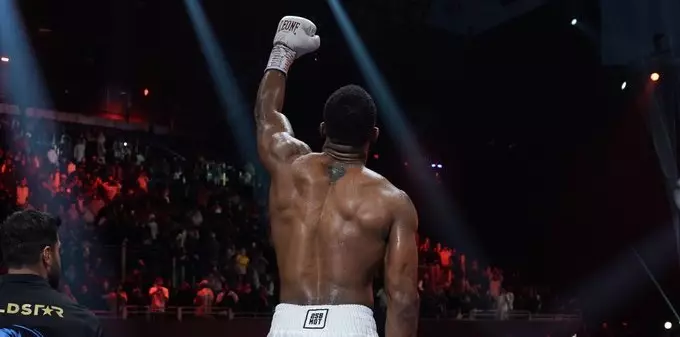Boxing, often considered one of the most demanding and perilous sports in the world, poses significant physical and psychological risks to its athletes. The very nature of the sport—where two individuals engage in combat, exchanging blows in an arena—means that fighters are all too aware of the toll it takes on their bodies. Acknowledging this, one must grapple with the reality that many boxers struggle to leave the ring even when it’s evident that their best days are behind them. Anthony Joshua, a celebrated heavyweight champion, is presently at a crucial juncture in his career, particularly after his recent defeat to Daniel Dubois.
Success in boxing is often a double-edged sword. For fighters like Joshua, who have tasted glory at the highest levels, the desire to continue fighting and proving one’s worth can be particularly intense. This is especially true when one’s past accomplishments are so monumental. Joshua, who has held the heavyweight title and captured the imaginations of boxing fans worldwide, may find it difficult to walk away, even in light of recent setbacks. Yet, the question arises: how many times can one bounce back after devastating losses?
The actors in boxing change rapidly, but the scrutiny remains relentless. Given Joshua’s recent performances—losing to formidable opponents like Daniel Dubois and enduring defeats against Andy Ruiz—questions about his longevity and suitability for the sport loom large. Both Dubois and Ruiz are not merely stepping stones in a boxer’s career; they are skilled fighters who have exploited Joshua’s vulnerabilities. Their victories over him highlight the harsh reality that, while a fighter’s legacy can shine brightly, the bumps and bruises endured throughout their career can reflect a different, less glamorous story.
One of the key concerns surrounding Joshua’s future in boxing lies in the accumulated damage he has sustained over his career. Notably, his match against Wladimir Klitschko stands out—a bout that was marked by intense physical exchanges. Although Joshua emerged victorious in what many view as an iconic fight, the toll taken on his body was unmistakable. The memory of being floored during that fight may haunt him, as it underscores the potential dangers of continued participation in the sport.
The implications of this accumulated damage extend beyond mere physicality; they reach into the mental realm, where the fear of injury can impact a fighter’s performance. A boxer who has taken substantial blows is at risk of declining health and cognitive abilities over time. Joshua’s past punches absorbed and the lingering effects of those battles can no longer be dismissed as battle scars of a valiant warrior but as warnings about his future viability in the ring.
Retirement is an uncomfortable concept for athletes, particularly for boxers who regard themselves as warriors. Those who have basked in the glory of title defenses and public admiration may find it unfathomable to step back willingly from the sport they’ve devoted their lives to. However, the real question that manifests is not only about Joshua’s immediate choices but rather about what those choices may invoke for his legacy.
Will Joshua, spurred by his competitive spirit, continue to press on in hopes of reclaiming lost glory, or will he heed the signals that suggest that perhaps, it’s time to step away for the sake of his long-term health? The compelling narrative built over years of hard work and triumph hangs in balance, and there is a palpable tension surrounding what his next move will be.
Ultimately, the decision surrounding retirement rests with Anthony Joshua, and it is imperative to prioritize safety above all else. Outside persuasions from fans and critics may echo through the corridors of his mind, but the responsibility to protect himself lies squarely on his shoulders. There is an unmistakable respect accorded to fighters who recognize when their time has come and step down gracefully.
As boxing continues to evolve and as new talents emerge, the legacy that Joshua has built can remain untarnished by letting go at the right moment. In sport—as in life—knowing when to call it quits can pave the way for new opportunities, allowing a champion to solidify an iconic status without subjecting himself to potential long-term harm. Thus, as supporters and love for the sport harmonize, the hope remains that Joshua makes a calculated decision that affirms not just his past triumphs, but his future well-being.


Leave a Reply